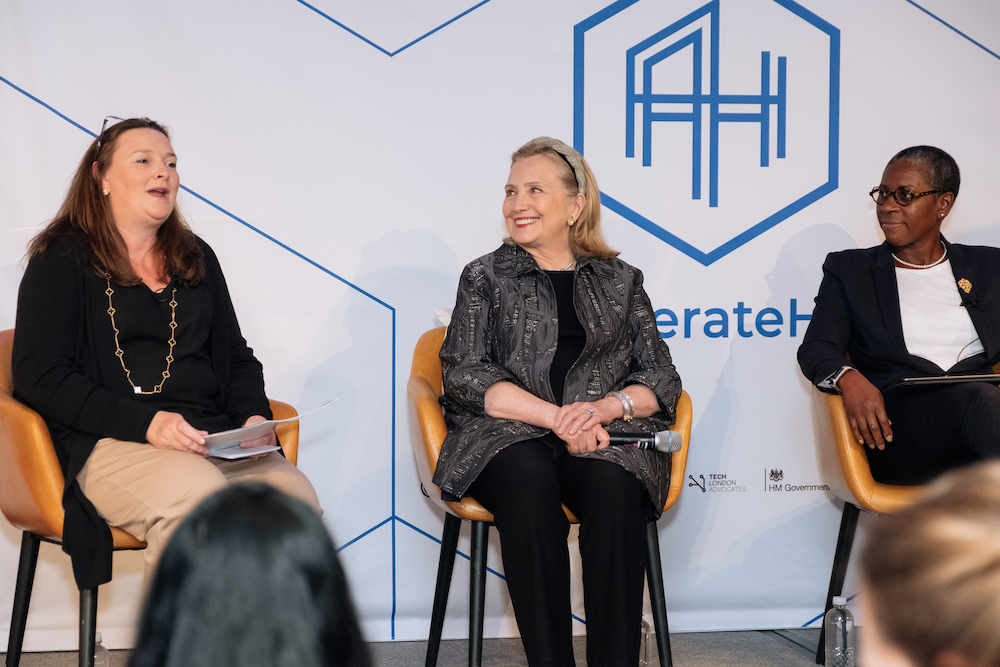IWD: Women in tech survey to #breakthebias
For International Women's Day (IWD), research suggests that despite women tech giants including Facebook’s Sheryl Sandberg and YouTube’s Susan Wojcicki being championed in the press, women are still facing barriers when it comes to entering and succeeding in the world of technology.
In 2022 there are still many obstacles to women entering the tech industry. This is according to fresh data obtained by London Tech Week, which takes place 13-17 June 2022. Anchor events include EQL:HER, a network of woman visionaries addressing the underrepresentation of women in tech.
- 68% of respondents believe that gender perception is the biggest obstacle to women entering the tech industry
- Stereotyping and lack of support during schooling (60% and 48%) are the biggest barriers to entry for women getting started in tech
One respondent to the survey, said: “I have watched women and men join in the same roles and be treated completely differently. Men are thrown in at the deep end and challenged, women are faced with the attitude ‘I don’t want to give her anything too difficult’ from men at a lower skill level. The perception is always that women must first prove that they are capable, and this attitude is persistent.” Another said: “The roles are there, there just aren't enough women applying, let alone women with the right skills; these are more senior tech roles.”
Funding for women-led startups Respondents also cited:
- A lack of role models (57%) in the industry is a huge obstacle to entering the sector
- Negative stories - e.g. the conviction of former American biotechnology entrepreneur Elizabeth Holmes – dampening their prospects of getting funding (48%) or launching a startup (41%)
Research shows women in tech are still light years away from their male counterparts in terms of funding. However, there are some signs that this is changing, with an improving pipeline of women-led start-ups, many of whom are disrupters and innovators in their field. Women feel this is, in part, due to:
- Seeing more leading women in tech championed in the press (60%)
- An increase in women-focused business events (49%)
- More women-led funds (58%)
- Accelerator programmes dedicated to women founders (49%)
The lasting impact of COVID-19
However, the long term impact of the COVID-19 pandemic on women in the workplace isn't helping.
- 72% of women believe careers in tech are still suffering thanks to them shouldering most of the burden of childcare or care of other dependants in their household whilst juggling work
- 48% say that women being forced to scale down their work and take time off to care for children has had a detrimental impact on their tech careers
On a more positive note, one respondent commented: “While I believe employed women may have suffered during Covid due to WFH policies and the difficulty to manage a healthy work-life balance, there have also been significantly more opportunities for unemployed women in tech, as a result of the great resignation and the current bidding war on talent.”
What can be done?
Only 38% of women believe that increased childcare would help more women get into the industry. Instead, they would rather see:
- Flexible working opportunities (62%)
- Equal pay (68%)
- Initiatives from companies to educate girls at school (57%)
- Mentorship programmes (55%)
Providing non-technical staff with the opportunity to retrain (54%) and providing clear and well-documented progression opportunities (51%) are seen as ways of helping women already working in tech. 49% of respondents say more emphasis needs to be placed on championing women role models. Elka Goldstein, Interim CEO of London Tech Week’s conference, EQL:HER, said: “We are seeing huge leaps forwards in rebalancing gender in tech, but there is still lots more to be done. We need to look at the systemic issues across the board, supporting women at just one level is not going to solve the problem. We need to be looking at solutions that start during women's school age and span across their lifetime. Educate in schools, create visible role models, provide access to skills programmes and generate more opportunities for funding. It can't be just one of these interventions it needs to be all of them. Society shapes stereotypes and creates biases that we need to address well before women even enter the workforce.”







